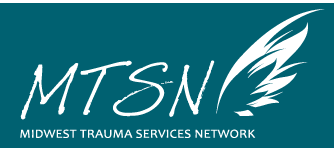Psychological First Aid (PFA) and Skills for Psychological Recovery (SPR)
Psychological First Aid (PFA) and Skills for Psychological Recovery (SPR) are promising practices for disaster behavioral health response and recovery. Both PFA and SPR were developed by the National Center for PTSD and the National Child Traumatic Stress Network, as well as other individuals involved in coordinating and participating in disaster response and recovery.
PFA and SPR intervention strategies are intended for use with children, adolescents, parents and caretakers, families, and adults who are survivors or witnesses exposed to disaster or terrorism. PFA and SPR can also be provided to first responders and other disaster relief workers.
While grounded in the same foundations of disaster response and recovery, there are several differences between PFA and SPR. PFA is a supportive intervention for use in the immediate aftermath of disasters and terrorism. SPR is used in the weeks and months following disaster and trauma, after the period where PFA has been utilized or when more intensive intervention is needed. The delivery of PFA is defined in terms of days or weeks after a disaster (timing will depend on the circumstances of the post-disaster setting). SPR is intended to assist disaster survivors after safety, security, and other vital and immediate needs have been met and when the community is rebuilding. In some cases, SPR may be delivered one week after a disaster, as a follow up to the initial PFA response, and in other cases it may be appropriate to provide this assistance weeks, months, or even years after a major event. The timing will be partially dependent on how devastating the disaster was to community resources and infrastructure.
SPR places greater emphasis on teaching specific skills to meet survivor needs, as well as on follow-up to reinforce the use of these skills. PFA, in contrast, is often delivered in temporary settings where follow-up may not be possible.
Taken from https://www.nctsn.org/treatments-and-practices/psychological-first-aid-and-skills-for-psychological-recovery
Robert Macy PHD and Frank Grijalva MSPH, MSCC are both nationally credentialed trainers of PFA and SPR.
Post Traumatic Stress Management Protecting vulnerable populations from biological and environmental maladaptive behavioral conditioning post-event.
Disaster Response
Protection of first responders and victims of disaster on scene and post event.
Foster and Adoptive Care Consultation and Training MTSN trains foster care staff, foster parents and works directly with children who through no fault of their own find themselves in environments that don’t understand what they have been through. MTSN has a proven track record of family retention and increasing recruitment of families for children in need. This countries communities continue to struggle with the dynamics of foster and adoptive care. There are simply too many children and not enough families. Additionally, foster and adoptive children have much higher exposure rates to traumatic and chronic stress events than children from more stable environments. MTSN currently works with Foster and Adoptive Care in 3 states and the requests for training are at an all-time high.
Trauma Sensitive School Trainings MTSN works in various capacities with schools across the country. From schools who have experienced an acute traumatic event to schools which deal with chronic poverty and other toxic stressors. MTSN has curriculum and expertise in helping schools to a better social emotional culture that in turn augments academics.
Anti-Bullying: Aggression Reduction and Victimization Profiling
Reducing targeted aggression and increasing respect and self-regulation at your school or agency
In-Home stabilization protocols for youth and their parents
Informed by behavioral conditioning under stress and multigenerational development of maladaptive behaviors
In-Home Staff Trainings The implementation of Families First will see big adjustments with increased programming being implemented in the home with more robust wrap around services, or at least that is the intent. With that in mind, how do you protect your staff? How do you balance the paperwork with the in home work? How do front line workers forced to take high case loads and inadequate resources and survive? How does the agency survive? MTSN can help agencies and workers adapt to these reoccurring problems. We can help agencies provide support and resource for staff in a way that optimizes their effectiveness and adds to the bottom line of the agency by reducing turnover and costly mistakes.
Classroom-Community-Culture Based Intervention Service Continuum
Re-establishing social networks and affect management through resiliency based programming.
Suicide Prevention Initiatives
Interruption of potential suicidal behavior and re-orientation towards resilience.
Early Childhood Resiliency Initiatives
Structured ritualized interaction through music, rhythm, and repetition designed to enrich social connections and stabilize affect management.
Sanctuary Model
Introduction to and advocacy of an organizationally based philosophy of understanding stress as developed by Sandra Bloom.
Milieu Management
The majority of children using intensive social services have experienced multiple traumatic stressors, these stressors have evoked survival responses that compel the children to "act out" in ways that are often seen as frightening, anti-social or odd to authority and caregivers. Many times staff focus on the behavioral patterns of children in crisis, or behavioral patterns that seem "deliberate". Milieu management training will offer psychoeducation, solutions, practice, and mastery for those who work in at-risk settings.
De-escalation Protocols and Restraint Reduction
Non-aggressive and client-centered protection that is based on the deep understanding of neuromuscular activation and nonverbal communication.
Social Workers/Clinicians
Introduction to and certification in PFA/PTSM (Psychological First Aid and Post Traumatic Stress Management) and SPR (Skills for Psychological Recovery). Introduction to trauma-informed clinical practices, such as TF-CBT, PFA for schools, and CBITS. Guidance in emerging best practice models and up-to-date resources.
The MTSN supports the ARC model as a promising practice for working with at-risk populations for more information, click here.
